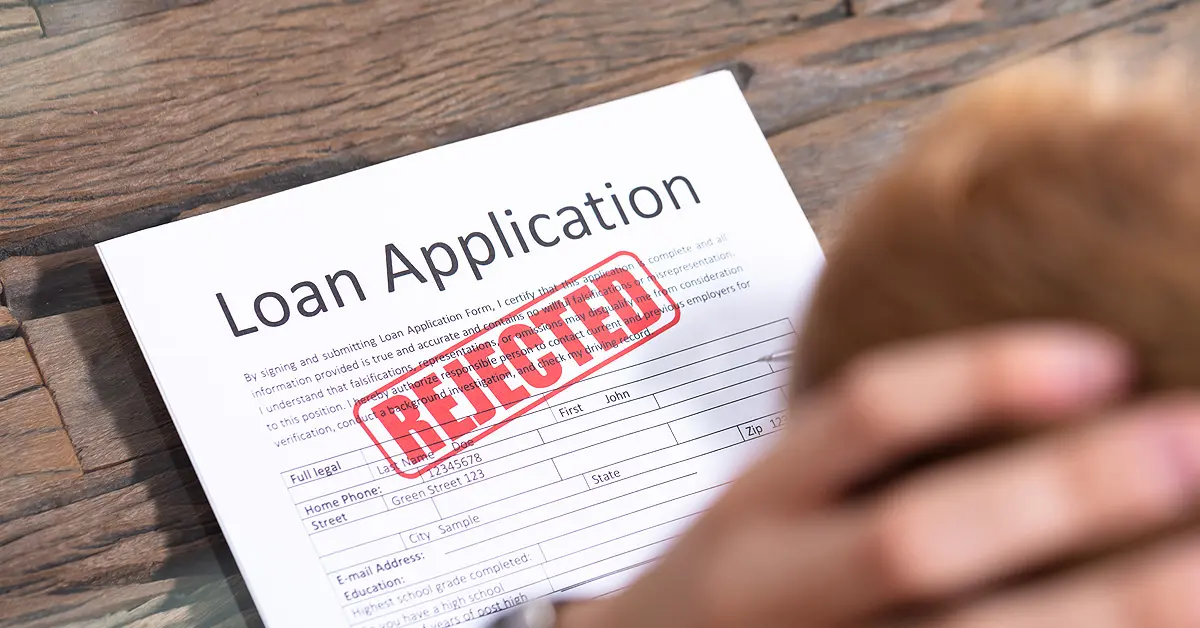Applying for a business loan can be stressful—especially if your application gets rejected and you’re left wondering why. The truth is, there are several common reasons lenders say no. The good news? Most of them can be fixed over time or avoided altogether.
Here’s a simple breakdown of the most common reasons business loan applications are turned down, and what you can do about it.
Top business loan rejection reasons:
1. Poor Credit History
Your credit score tells lenders how reliable you are when it comes to repaying debts. If your business or personal credit file shows missed payments, defaults, County Court Judgments (CCJs), or an IVA, lenders may see you as a higher risk.
💡 TIP
Check your credit report for free and fix any errors. Focus on paying bills and loans on time to slowly rebuild your credit.
2. Not Trading Long Enough
If your business is brand new or has only been trading for a few months, lenders may be hesitant. They usually prefer businesses with at least 12 to 24 months of trading history so they can see a pattern of stability and income.
💡 TIP
Consider startup-specific funding or alternative finance options if your business is still young.
3. Low or Inconsistent Revenue
Lenders want to see that your business earns enough to comfortably repay the loan. If your income is too low, or if you have large dips and spikes in revenue, it can raise concerns.
💡 TIP
Submit recent bank statements or accounts to prove consistent income where possible. You may also be asked for a business plan or forecast.
4. Too Much Existing Debt
If your business is already juggling multiple loans, credit cards, or other debts, lenders may be cautious about giving you more. A high debt-to-income ratio is a common reason for rejection.
💡 TIP
Try to reduce or consolidate existing debts before applying for new finance. If you're struggling, free business debt advice services can help you understand your options and create a plan.
5. Application Errors or Missing Info
It might sound simple, but many business loan applications are rejected just because they’re incomplete or contain errors. Missing financial records, incorrect figures, or vague business details can hurt your chances.
💡 TIP
Double-check everything before submitting. Provide all requested documents like bank statements, tax returns, or ID—upfront.
6. No Security or Collateral
Some lenders offer secured business loans, which means you need to put up an asset (like property or equipment) as security. If you can’t offer any collateral, you may not qualify for these types of loans.
💡 TIP
Look for unsecured business loans or lenders that don’t require security. Just be aware these may come with higher interest rates.
7. High-Risk Industry
Certain industries like hospitality, construction, or gambling, are seen as riskier by lenders due to economic trends or past default rates. This can work against your application, even if your finances are solid.
💡 TIP
Seek out lenders who specialise in your industry or understand the challenges it faces.
8. Negative Bank Account Activity
If your business account frequently dips into the red, shows returned payments, or has a low average balance, lenders might worry about your cash flow and financial management.
💡 TIP
Keep a healthy buffer in your account and try to avoid bounced payments or overdrafts where possible.
9. You Don't Meet the Lender’s Criteria
Every lender has their own rules about who they’ll lend to. Some require a minimum turnover, certain business structures (like limited companies), or even a specific location.
💡 TIP
Work with a business finance broker or comparison site (like ours!) to find lenders that suit your specific situation.
What to do if you’ve been refused a business loan
If you’ve been refused a business loan, don’t panic! Take time to understand why it was declined. Start by reviewing the lender’s feedback, as common reasons for rejection include poor credit history, low cash flow, or limited trading time. Check your credit report for any mistakes and take steps to improve your financial position where possible.
You can also explore alternative funding options such as asset finance, invoice finance, or specialist bad credit loans, which may be better suited to your circumstances.
Our final thoughts
Getting rejected for a business loan can feel frustrating—but it’s often just a sign that your application needs a little more preparation. By understanding the most common reasons for rejection, you can take steps to strengthen your business and improve your chances next time.
If you’ve been turned down and need help finding lenders who work with bad credit or challenging situations, we’re here to help—compare business loans today.




